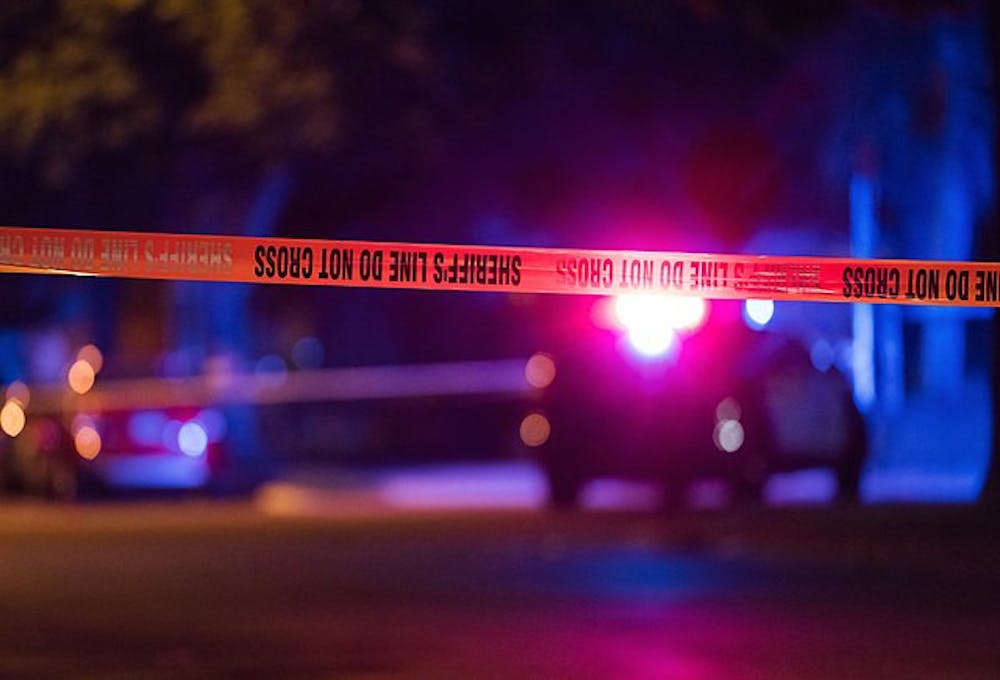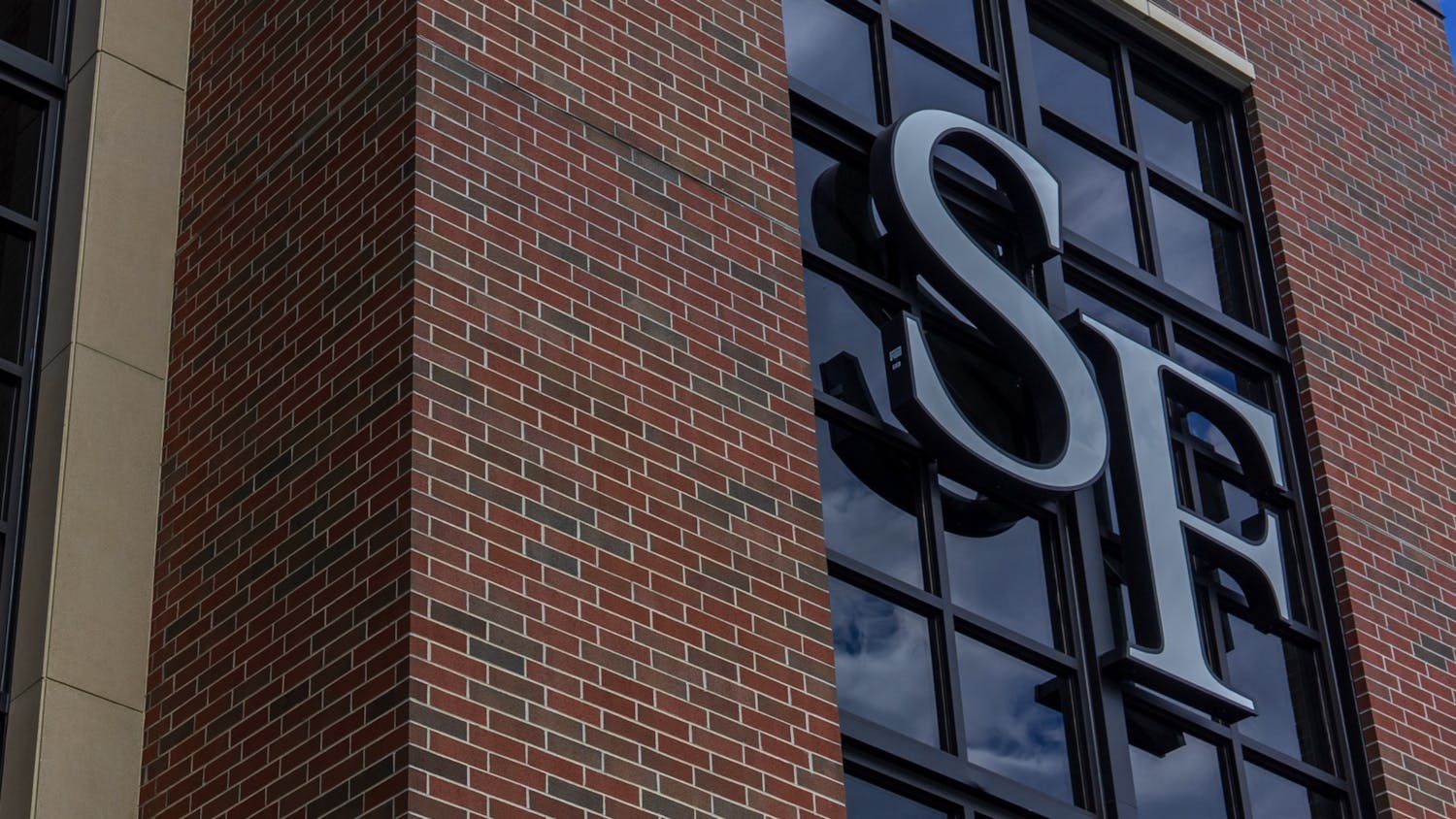On the outskirts of UF’s campus, ‘Justin’s General Store,’ a code name for the SaferPlaces Lab, blurs the lines between a real store and a shoplifting simulation straight out of a sci-fi movie.
From Target to Topgolf, 85 of the nation’s largest retail stores rely on technology developed by the Gainesville-based Loss Prevention Research Council (LPRC) to deter shoplifting. The SaferPlaces Lab, a simulated storefront located at the UF Innovation Hub, is at the forefront of this nationwide initiative to protect retail shoppers financially and physically.
“We deal with active shooters, armed robberies, burglaries, theft, fraud,” said Read Hayes, a UF research criminologist and director of the LPRC. “There's nothing like it out there that we're aware of for crime prevention research.”
Retail theft can have far-reaching consequences, he said. The United States Chamber of Commerce estimates organized retail crime, a highly coordinated form of shoplifting, resulted in over $125 billion in economic losses in 2023 alone. Stores react to these losses by raising prices, closing locations or reducing in-store product selections, which ultimately harms shoppers.
“You're having to choose from bad to really bad options,” Hayes said. “‘Do I lock this up, so my customers can't get to it? Do I not carry it anymore? Do I just close my store?’”
The Florida Department of Law Enforcement collected data in 2021, the most recent year of publicly available statistics, that showed a gradual decline in theft rates across Alachua County. How much of that comes from merchandise is unknown, as the sheriff's office is “not able to separate retail theft cases out from regular theft cases,” said ACSO Spokesperson Arthur Forgey.
However, nationwide survey data reveals an escalation beyond property theft in recent years. Eighty-eight percent of retailers reported heightened levels of aggression and violence among shoplifters, compared to data from 2022.
Hayes’ research team, affiliated with the UF Herbert Wertheim College of Engineering, develops technology to make committing crime harder, riskier and less rewarding. The process starts by interviewing self-admitted criminal offenders to understand their perspectives and choices.
Then, the gadgets are installed and tested in the SaferPlaces Lab, a mock store stocked with every possible item type. While the equipment packed into this small space can feel overwhelming at first, its effectiveness is undeniable, Hayes said.
“You'll see just a whole different array of protective technologies and tactics and things going on here,” Hayes said.
He estimates they’ve developed over 400 new devices. One type of lockbox requires customers to wait a few seconds before dispensing items, while listening to a loud clicking sound. Another box requires shoppers to use two hands while grabbing items, preventing shoplifters from sweeping goods into a large bag.
“It's maddening for anybody to have to wait, but the shoplifter wants a bunch of stuff fast,” Hayes said. “They don't want clicking and waiting.”
To make it easier for legitimate shoppers to get their items, Hayes is experimenting with a new type of box that allows customers to input their phone number and receive a code through text message to unlock it.
“Nobody loves doing that, but shoplifters hate doing that,” Hayes said. “They don't want you to have their phone number and their face at the same time. It's an attempt to maintain highly desirable but high theft items in store.”
Even self-checkout isn’t a reliable option for shoplifters. Artificial intelligence can recognize when a customer doesn’t scan something or falsely scans a less-expensive item than the one they have. Not only does it stop the transaction, but a video of the incident appears on the screen to catch thieves in the act.
No item is safe from this technology. Artificial intelligence, 360-degree camera sensors and magnet detectors protect everything from liquor bottles to sunglasses or laundry detergent, Hayes said.
“Every week that goes by, new technologies are being installed, new things are being plugged together,” he said. “I think we're hopefully just getting started, even though we've been around for a couple decades.”
The research team isn’t just focused on shoplifting, either. They’re developing new initiatives to stop any threat that might occur in a store, including active shooter situations.
In one active shooter scenario, shoppers inside the store manage to escape because of AI-powered green beacons installed throughout the store, meant to guide victims to safety. Red flashing lights indicate the general position of the shooter.
This technology will be demonstrated at the LPRC’s Integrate summit Feb. 29, where simulation exercises are used to better prepare local first responders for active shooter situations and test lifesaving measures, like the color-coded beacons, developed by UF researchers.
“The way we look at the world is, we're here to safeguard vulnerable people,” Hayes said. “How do we leverage research to safeguard vulnerable people in places and spaces?”
UF Innovate | Accelerate, the organization responsible for providing business support to companies like the LPRC, runs the 100,000 square foot Innovation Hub just a few blocks from the UF campus.
“We're the fuel for companies like LPRC to dream big and bring their visions to life,” said Jennifer Harrell, assistant director of UF Innovate | Accelerate. “Our program offers top-notch office and lab spaces, along with structured business entrepreneurship support.”
Businesses like the LPRC also power the local economy, positioning Gainesville as a hot spot for innovative technology companies, Harrell said.
“Working with early-stage companies like LPRC has collectively attracted over 11.3 billion dollars of capital into our community and created more than 8,500 highly attractive, high-paying jobs,” Harrell said.
Contact Daniel Bednar at dbednar@alligator.org. Follow him on X @Danielbednar5.
Daniel Bednar is the City & County Commission reporter and a second-year political science major. He previously worked as the crime reporter. When he's not writing, you can find him driving a motorcycle or flying an airplane.






